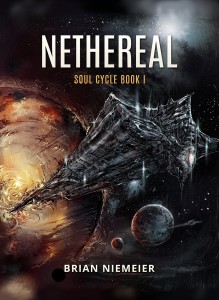This is the text of Alexander Solzhenitsyn speech delivered to delivered 8 June 1978, Harvard University.
I present it without comment: the thing speaks for itself. But I will direct your attention to one line, which is of particular weight and terror to me:
I will also utter a note not about the speech but its audience. I observe the sad irony that, before his speech, the Powers That Be among our progressive elite master class hailed and praised Solzhenitsyn as a second Tolstoy, and, after, forbore to mention him at all. No opium-addled oriental potentate lolling on his divan surrounded by eunuchs and courtiers was ever so fickle or addicted to flattery as our modern Powers That Be, whose insolent rule over us lacks the least shred of honest authority.
I am sincerely happy to be here on the occasion of the 327th commencement of this old and most prestigious university. My congratulations and very best wishes to all of today’s graduates.
Harvard’s motto is “VERITAS.” Many of you have already found out, and others will find out in the course of their lives, that truth eludes us if we do not concentrate our attention totally on it’s pursuit. But even while it eludes us, the illusion of knowing it still lingers and leads to many misunderstandings. Also, truth seldom is pleasant; it is almost invariably bitter. There is some bitterness in my today’s speech too, but I want to stress that it comes not from an adversary, but from a friend.
Three years ago in the United States I said certain things which at that time appeared unacceptable. Today, however, many people agree with what I then said.
The split in today’s world is perceptible even to a hasty glance. Any of our contemporaries readily identifies two world powers, each of them already capable of entirely destroying the other. However, understanding of the split often is limited to this political conception: that danger may be abolished through successful diplomatic negotiations or by achieving a balance of armed forces. The truth is that the split is a much more profound and a more alienating one, that the rifts are more than one can see at first glance. This deep manifold split bears the danger of manifold disaster for all of us, in accordance with the ancient truth that a kingdom — in this case, our Earth — divided against itself cannot stand.
There is the concept of Third World: thus, we already have three worlds. Undoubtedly, however, the number is even greater; we are just too far away to see. Any ancient and deeply rooted, autonomous culture, especially if it is spread on a wide part of the earth’s surface, constitutes an autonomous world, full of riddles and surprises to Western thinking. As a minimum, we must include in this category China, India, the Muslim world, and Africa, if indeed we accept the approximation of viewing the latter two as compact units.
For one thousand years Russia belonged to such a category, although Western thinking systematically committed the mistake of denying its autonomous character and therefore never understood it, just as today the West does not understand Russia in Communist captivity. It may be that in past years Japan has increasingly become a distant part of the West. I am no judge here. But as to Israel, for instance, it seems to me that it’s been the part from the western world, in that its state system is fundamentally linked to religion.
How short a time ago, relatively, the small, new European world was easily seizing colonies everywhere, not only without anticipating any real resistance, but also usually despising any possible values in the conquered people’s approach to life. On the face of it, it was an overwhelming success. There were no geographic frontiers to it. Western society expanded in a triumph of human independence and power. And all of a sudden in the 20th century came the discovery of its fragility and friability.
We now see that the conquests proved to be short lived and precarious — and this, in turn, points to defects in the Western view of the world which led to these conquests. Relations with the former colonial world now have turned into their opposite and the Western world often goes to extremes of subservience, but it is difficult yet to estimate the total size of the bill which former colonial countries will present to the West and it is difficult to predict whether the surrender not only of its last colonies, but of everything it owns, will be sufficient for the West to foot the bill.
But the blindness of superiority continues in spite of all and upholds the belief that the vast regions everywhere on our planet should develop and mature to the level of present day Western systems, which in theory are the best and in practice the most attractive. There is this belief that all those other worlds are only being temporarily prevented (by wicked governments or by heavy crises or by their own barbarity and incomprehension) from taking the way of Western pluralistic democracy and from adopting the Western way of life. Countries are judged on the merit of their progress in this direction.
However, it is a conception which develops out of Western incomprehension of the essence of other worlds, out of the mistake of measuring them all with a Western yardstick. The real picture of our planet’s development is quite different and which about our divided world gave birth to the theory of convergence between leading Western countries and the Soviet Union. It is a soothing theory which overlooks the fact that these worlds are not at all developing into similarity. Neither one can be transformed into the other without the use of violence. Besides, convergence inevitably means acceptance of the other side’s defects, too, and this is hardly desirable.
If I were today addressing an audience in my country, examining the overall pattern of the world’s rifts, I would have concentrated on the East’s calamities. But since my forced exile in the West has now lasted four years and since my audience is a Western one, I think it may be of greater interest to concentrate on certain aspects of the West, in our days, such as I see them.
A decline in courage may be the most striking feature which an outside observer notices in the West in our days. The Western world has lost its civil courage, both as a whole and separately, in each country, each government, each political party, and, of course, in the United Nations. Such a decline in courage is particularly noticeable among the ruling groups and the intellectual elite, causing an impression of loss of courage by the entire society. Of course, there are many courageous individuals, but they have no determining influence on public life.
Political and intellectual bureaucrats show depression, passivity, and perplexity in their actions and in their statements, and even more so in theoretical reflections to explain how realistic, reasonable, as well as intellectually and even morally worn it is to base state policies on weakness and cowardice. And decline in courage is ironically emphasized by occasional explosions of anger and inflexibility on the part of the same bureaucrats when dealing with weak governments and with countries not supported by anyone, or with currents which cannot offer any resistance. But they get tongue-tied and paralyzed when they deal with powerful governments and threatening forces, with aggressors and international terrorists.
Should one point out that from ancient times declining courage has been considered the beginning of the end?
Read the remainder of this entry »




